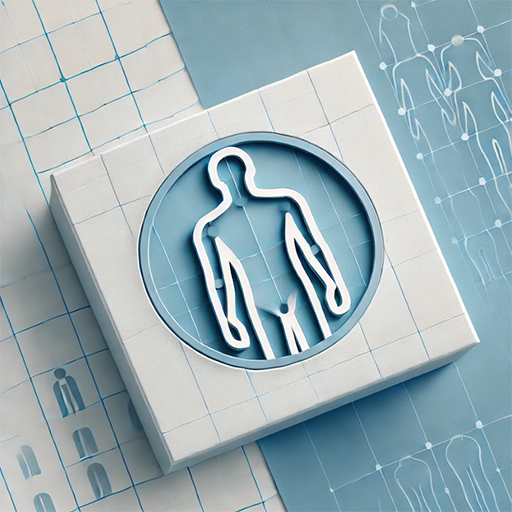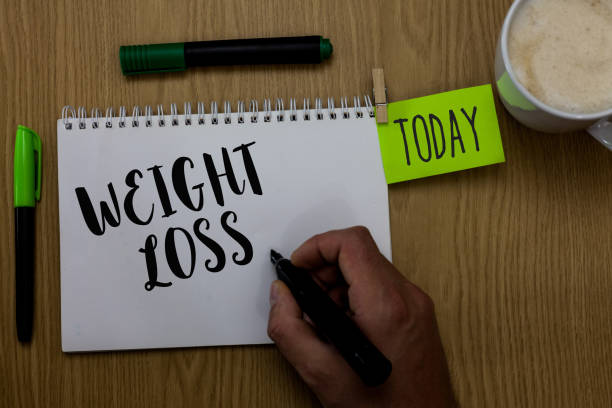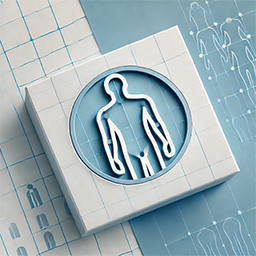Losing weight can feel hard. But with the right plan and mindset, you can make real progress. Whether you’re just starting out or trying again, these 10 tips will help you get on track and stay there.
Let’s break down simple, science-backed ways to kick off your weight loss journey with confidence. From eating smarter to moving more, small changes can lead to big results. You don’t need fancy diets or extreme workouts—just real steps that fit into your daily life.
This guide will show you how to build healthy habits that last. Start today and take control of your health, one step at a time.
1. Set Realistic and Clear Goals
Before you change how you eat or exercise, set a clear goal.
Knowing exactly what you want to achieve gives you a sense of direction and purpose. A clear goal acts like a roadmap, helping you choose the right diet, workouts, and habits to follow. It also makes it easier to track your progress and stay motivated when challenges come up. Whether your aim is to lose weight, build muscle, improve stamina, or boost overall health, writing it down makes it more real. Keep your goal specific, measurable, and realistic so you can see results over time.
Why It Matters:
Having a goal gives you direction. It also helps you track progress.
Instead of this:
“I want to lose weight.”
Try this:
“I want to lose 10 pounds in 2 months by walking and eating healthier.”
Make Your Goals SMART:
- Specific: Know exactly what you want.
Don’t just say, “I want to lose weight.” Instead, say, “I want to lose 10 pounds in two months.” A clear goal helps you stay focused.
- Measurable: Track your progress.
Use a scale, take body measurements, or track how your clothes fit. Seeing results will keep you motivated.
- Achievable: Start with something realistic.
Don’t aim to lose 30 pounds in a month. Set a goal you can reach, so you don’t feel discouraged.
- Relevant: Focus on what matters most to you.
Make sure your goal fits your lifestyle and personal reasons—like improving your health or having more energy for your kids.
- Time-bound: Set a deadline.
Give yourself a finish line. A timeline helps you stay on track and pushes you to keep going.
✅ Tip: Use a journal or app to keep track of your goals and wins.

2. Drink More Water
Many people mistake thirst for hunger. When you feel hungry, you might just be dehydrated. Drinking more water can help curb cravings and boost your metabolism. Try having a glass of water before meals.
How It Helps:
- It can help you feel full and eat less
- Staying hydrated also helps your body burn calories more efficiently
- Improves your digestion
Aim for at least 8 glasses a day. Have a glass before meals to help control portion size.
👉 A 2016 study found that drinking 500 ml of water before each meal led to more weight loss over 12 weeks.
Source: NIH
3. Eat More Whole Foods
Whole foods are packed with nutrients and fewer calories. They give your body what it needs without the extra sugar, salt, and fat found in processed foods.
Focus on:
- Fresh fruits and vegetables
- Lean meats and fish
- Whole grains like oats and brown rice
- Nuts, seeds, and legumes
These foods keep you full longer and help you avoid overeating. Eating more whole foods can make a big difference in your weight loss journey and overall health. Avoid ultra-processed foods. They are high in sugar, fat, and salt and don’t keep you full for long.
🥗 Simple swap: Choose a baked sweet potato over fries.
4. Move Your Body Every Day
Exercise doesn’t have to be hard. Just move more than you did yesterday. You don’t need a gym or long workouts to get started. Take a walk, stretch during breaks, or dance to your favorite songs. Small steps count. Over time, these movements add up and help you burn more calories. The key is to stay active and build a routine that works for you.
Easy Ways to Add Movement:
- Walk for 30 minutes after dinner
- Dance while doing chores
- Take the stairs instead of the elevator
- Stretch when you wake up
The CDC recommends at least 150 minutes of moderate activity per week.
Start small. Consistency matters more than intensity at the beginning.
5. Watch Your Portion Sizes
You can overeat healthy food if your portions are too big. Even foods like nuts, brown rice, or avocado have calories that can add up fast. Eating large portions—even of healthy meals—can slow your weight loss. Pay attention to serving sizes and listen to your body’s hunger signals.
Try These Portion Control Tips:
- Use a smaller plate
- Avoid eating straight from the bag
- Eat slowly and enjoy each bite
- Stop when you feel 80% full
📏 Visual trick: A serving of meat should be the size of your palm.

6. Get Enough Sleep
Poor sleep can lead to weight gain.
It affects your hunger hormones and energy levels, making it harder to control cravings and stay active. When you don’t get enough rest, your body produces more ghrelin, the hormone that increases appetite, and less leptin, the hormone that signals fullness. This imbalance can cause you to eat more than your body needs, often craving high-calorie or sugary foods. Low energy from poor sleep can also reduce your motivation to exercise, slowing your metabolism over time.
Aim for 7–9 hours each night.
Lack of sleep makes you crave junk food and lowers your willpower. It also slows your metabolism.
🛏️ Try to keep a consistent bedtime and avoid screens an hour before sleeping.
7. Keep Healthy Snacks Around
When hunger hits, you’ll eat what’s easy to grab.
So make sure healthy options are within reach. Having nutritious choices in sight makes it easier to eat well without overthinking. This simple habit can help you control portions, avoid unnecessary calories, and support your health goals over time.
Great Snack Choices:
- Greek yogurt
- Sliced veggies with hummus
- A handful of almonds
- Boiled eggs
- Fresh fruit
🧺 Tip: Prep your snacks on Sunday to save time during the week.
8. Reduce Sugar and Sugary Drinks
Sugar adds calories with no real benefits.
Cutting back helps your body burn fat better. Too much sugar can spike your blood sugar levels, leading to energy crashes and increased cravings. Over time, excess sugar can be stored as fat, making it harder to maintain a healthy weight. It can also raise your risk of diabetes, heart disease, and other health problems. This simple change can improve your metabolism, boost your energy, and support long-term health.
Watch Out For:
- Soda and sweet teas
- Energy drinks
- Candy and desserts
- Sugary cereals and sauces
Try switching to water, herbal tea, or sparkling water with lemon.
📉 One can of soda a day can add up to over 15 pounds of fat in a year.
9. Manage Stress in Healthy Ways
Stress leads to emotional eating.
You may reach for comfort food, even when you’re not hungry. This happens because stress triggers the release of cortisol, a hormone that can increase appetite and cravings for high-sugar or high-fat foods. While these foods may give you temporary relief, they can lead to weight gain and low energy over time. By replacing comfort food habits with better coping strategies, you can protect both your physical health and emotional well-being.
Try These Healthy Stress Relievers:
- Go for a walk
- Talk to a friend
- Write in a journal
- Meditate or breathe deeply
Chronic stress raises cortisol levels, which can make it harder to lose weight.
Source: Harvard Health

10. Don’t Skip Meals—Especially Breakfast
Skipping meals may seem like a shortcut, but it can backfire.
When you go too long without eating, your blood sugar drops, leaving you tired, irritable, and less focused. Hunger can build up, leading to overeating or choosing unhealthy, high-calorie foods later. Skipping meals can also slow your metabolism, making it harder for your body to burn calories efficiently. Instead of skipping, aim for balanced meals and healthy snacks throughout the day to keep your energy steady and your hunger under control. This approach supports better weight management and overall health.
Why You Should Eat Regularly:
- Keeps your metabolism steady
- Prevents binge eating later
- Gives you energy for the day
Make your breakfast protein-rich. This helps you feel full longer.
🥚 Try eggs, whole-grain toast, and a fruit smoothie to start your day right.
Bonus Tip: Track Your Progress
Logging your food, exercise, and weight helps you stay on track. Writing things down makes your progress clear and real. You can use:
- A notebook – Simple and easy to carry anywhere
- A fitness tracker – Great for counting steps and tracking workouts
- Free apps like MyFitnessPal – Helpful for logging meals and checking calories
When you see your progress, you’ll stay motivated. It also helps you spot habits that may be holding you back. Tracking keeps you focused and makes it easier to reach your goals.
Final Thoughts: Start Small and Stay Consistent
Your weight loss journey doesn’t need to be perfect. It just needs to start.
Focus on small steps. Over time, they add up to big changes. Drink more water, take short walks, or swap junk food for healthy snacks. These small wins build momentum. Some days will be harder than others—but don’t quit. Progress isn’t always fast, and that’s okay. Each choice you make brings you closer to your goal. Keep going, and trust the process.
Remember: You’re not just losing weight—you’re gaining health, confidence, and energy.
Ready to Jumpstart Your Journey?
Start by picking 2 tips from this list and applying them today. Then, add more each week.
Have questions or want to share your own tip? Drop a comment below—we’d love to hear from you!



